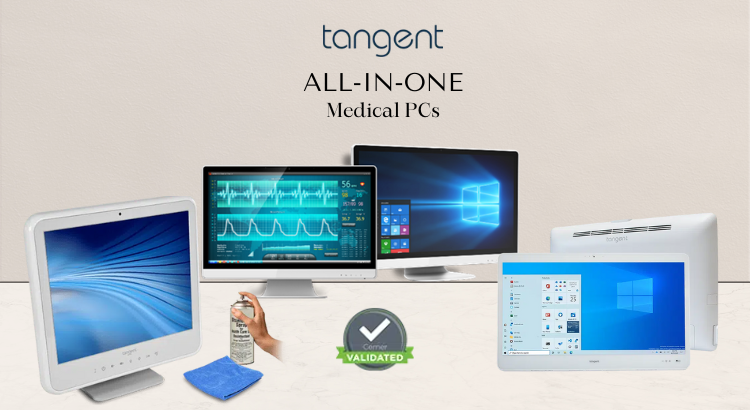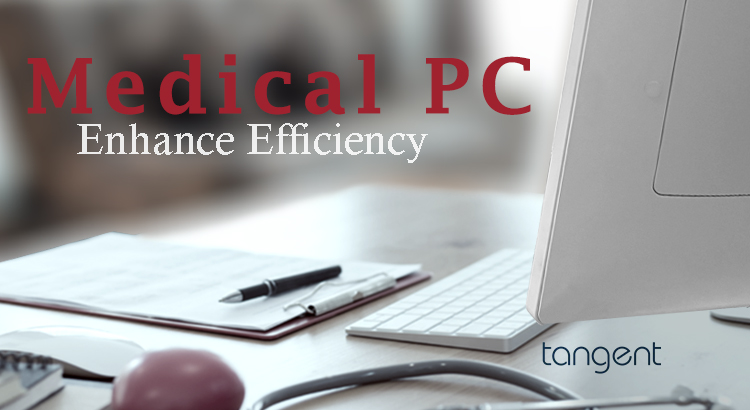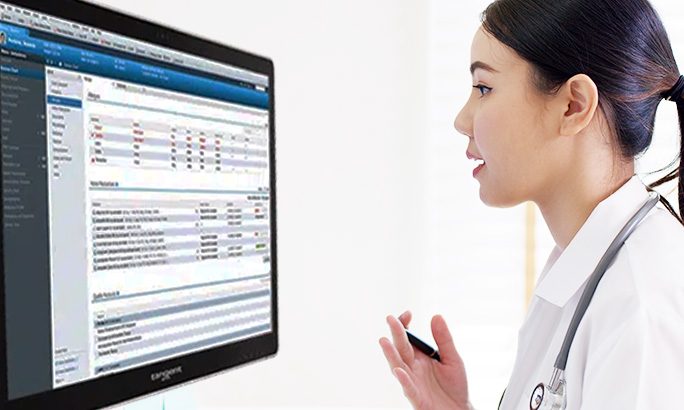In healthcare settings, computers are central to managing patient data, diagnostics, imaging, and daily workflows. Doctors and healthcare professionals rely on specialized medical-grade computers, all-in-one (AIO) systems, and tablets designed to meet the stringent demands of medical environments. These devices need to perform seamlessly, adhere to regulatory standards, and often withstand rigorous sterilization processes to […]
Tag: Medical Computers

What is a Medical Computer?
Technology is indispensable for delivering patient care these days. From managing patient records and overseeing medication orders to conducting diagnostic tests and facilitating telemedicine, healthcare professionals rely heavily on computers and other digital devices to carry out their responsibilities effectively. However, not just any computer can meet the demands of a hospital environment. It is […]
Medical Computers Trusted Globally
Since the 90s, Tangent has been a reliable, trusted computer manufacturer pioneering products for medical use. We champion the industry by engineering state-of-the art medical products. Today, our products can be found in medical facilities globally. Hospitals, clinics, pop-up emergency tents use our computers to provide essential services- we couldn’t be prouder. To get here, […]

What is a Medical PC All-In-One ?
You’ve heard these device names before: “Medical Computer“, “Medical Tablet“, “Medical Cart“, “Medical PC“.. your understanding of each is pretty fair and well placed; but, “Medical PC All-In-One?!” If your head just exploded or irritation struck, we get it. It’s a mouthful and what exactly is it? A Medical PC All-In-One is actually a well-appointed, […]

Why a Tangent Partnership Is Your Next Best Move
In today’s fast-paced business environment, staying ahead of the curve isn’t just an advantage; it’s a necessity. At Tangent, we’ve been rigorously analyzing industry trends and the strategies behind most successful businesses. Our deep dive into the mechanics of success has allowed us to pinpoint exactly how we can elevate your business, not just to […]

What are the strengths and limitations of computers in Medicine?
The National Library of Medicine, has a publication titled, “APPLICATION OF COMPUTER TECHNIQUES IN MEDICINE”. The article mentions the several applications and limitations of computers. Medical computers have become vital tools in the field of medicine, greatly impacting patient care, research, and healthcare administration. However, like any technology, they come with strengths and limitations. Strengths: […]

Medical PCs: Powering Healthcare Innovation and Efficiency
In the rapidly evolving landscape of healthcare, technological advancements are revolutionizing patient care, improving outcomes, and enhancing operational efficiency. At the heart of this transformation are medical PCs, purpose-built computing devices designed to meet the unique demands and rigorous standards of the healthcare industry. In this comprehensive guide, we will explore the essential role of […]

The Role of Medical PCs in Modern Healthcare
Medical PCs have become an essential component in modern healthcare, enabling healthcare providers to provide efficient, accurate, and effective patient care. Medical PCs are computers designed specifically for use in healthcare settings, with features and functions that cater to the unique needs of healthcare providers. In this blog, we will explore the role of medical […]
